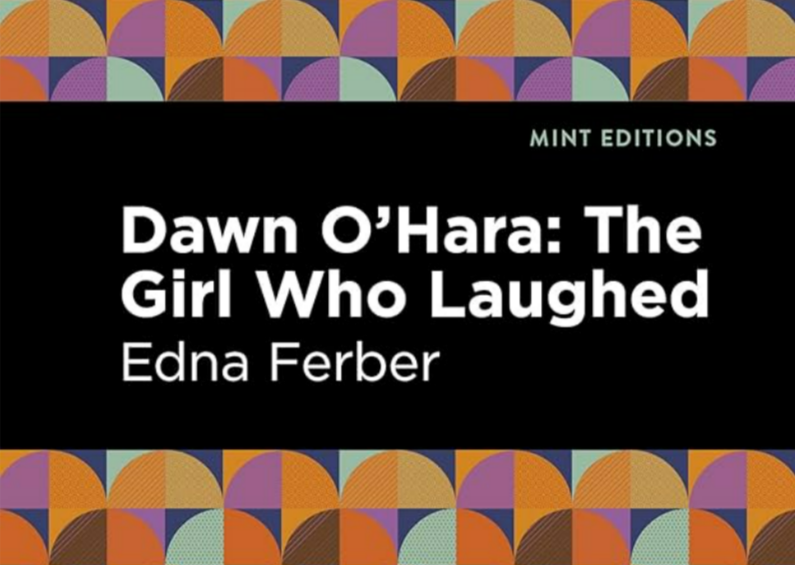CHAPTER IX ‑Dawn O’Hara: The Girl Who Laughed
byCHAPTER IX – Dawn O’Hara: The Girl Who Laughed brings forth a pair whose presence breaks the mundane rhythm of Midwestern life—a couple from Vienna whose manner and story captivate Dawn from the start. The man, an engineer of rare skill but little refinement, appears awkward in both form and demeanor. His wife, by contrast, commands attention not through beauty but through style and poise, her expressive hands and contagious laughter turning polite curiosity into genuine fascination.
Though her garments are outdated by American standards, they reflect a European sophistication rooted in another world entirely. She smokes with ease, converses fluently in several languages, and navigates the supper setting as if it were a courtly salon. Her gestures hold a quiet authority, and even among the skeptical stares of small-town women, she radiates self-assurance born from a life of privilege, heartbreak, and endurance.
It is only through Frau Knapf’s guarded disclosures that the truth behind Frau Nirlanger’s elegance is revealed. Once the widow of a prominent Viennese noble, she defied expectation by marrying below her station, choosing love over legacy. Her aristocratic family retaliated, not just with scorn but with ruthless legal action, stripping her of her son and attempting to deny her access to her inheritance.
Although the courts returned her wealth, the emotional cost was staggering. Her child, the true heart of her past, remained out of reach—taken by the very people who valued pedigree more than affection. This pain led them to emigrate, leaving behind a society that had no place for a woman who dared to live by her heart rather than by protocol.
The revelation reshapes Dawn’s view of the couple. What once seemed like mismatched eccentricity now reads as survival—a fragile partnership built not on equality, but on devotion and shared exile. Frau Nirlanger’s loyalty, even in the face of her husband’s brashness, seems rooted not in subservience but in something harder to define—hope, perhaps, or the belief that rebuilding a life was still possible in this strange new world.
A tender detail emerges when Frau Knapf privately asks Dawn to help Frau Nirlanger shop for American clothing. This request is more than a favor; it’s a gesture of support for a woman trying to reshape her life without erasing where she came from. The goal isn’t to impress strangers—it’s to recapture a little joy, to feel seen again, perhaps by her husband, perhaps by her distant son, or maybe by herself.
Dawn accepts without hesitation, recognizing that clothes in this context are more than fabric and thread—they represent identity, aspiration, and a silent rebellion against loss. In helping her choose garments, Dawn is not simply aiding a makeover; she’s participating in an act of quiet resilience. Frau Nirlanger may have left behind palaces and titles, but she still seeks moments of dignity in a world that rarely offers them freely.
Through this interaction, the chapter softly explores the complexities of womanhood—how love and sacrifice often coexist, and how the need for self-expression can survive even in hardship. For Frau Nirlanger, assimilation is not about forgetting the past; it’s about adapting it to fit into a life where her story still matters. And for Dawn, this experience deepens her empathy, reminding her that behind every refined gesture or outdated gown lies a history worth honoring.
By the chapter’s end, the characters are seen in new light—not as curiosities, but as survivors of a world that rarely forgives those who challenge its rules. Their arrival in Milwaukee might seem unremarkable to others, but to Dawn, it symbolizes endurance and the ways love can reshape even the most painful journeys. The contrast between their refined origins and present reality becomes a quiet tribute to those who’ve lost much yet still carry themselves with unspoken grace.
Ultimately, this chapter doesn’t just tell a story of romance or class; it reveals the raw edges of starting over. It highlights how identity, once fractured by loss, can still be stitched together with memory, love, and the courage to remain whole in a world that demands forgetting. Through Frau Nirlanger, Dawn learns that survival isn’t just about living—it’s about honoring who you were while daring to become someone new.

